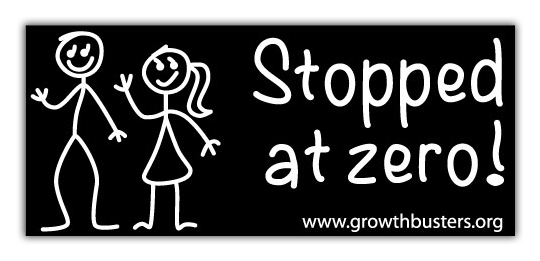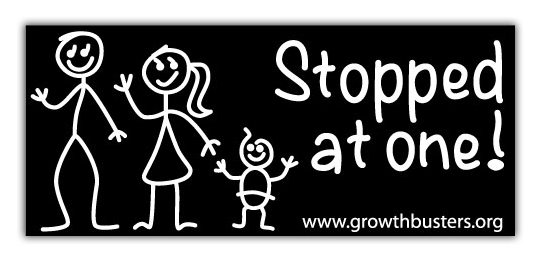
How Do We Get Out of This Mess? University Students Brainstorm
Students in a DU ecological economics class discuss their biggest concerns and how our society might overcome them. Overshoot, polarization, the American Dream, politics, selfish individualism, and the capitalism growth imperative are among the topics explored – as GrowthBuster Dave Gardner sits down with leaders of tomorrow.
Dave is joined by Professor Paul Sutton at the University of Denver and students Lilia Davis, Julia Gainey, Cassienne Levan, Nathan Cox, Mikey Ford, Geordie Shonk, Elsa Krantz, and Alexandra Van de Water. Surprisingly, all the students seem to have a clear picture of how deadly serious our overshoot predicament is, but – just as surprisingly – optimism wasn’t found wanting.
MENTIONED:
What Do College Students Think Their Future Holds? – Episode 65 of the GrowthBusters podcast
Overshoot: World’s Best Introduction – Episode 57 of the GrowthBusters podcast
G7 Clean Energy Economy Action Plan – May 20, 2023 Statement
Give Us Feedback:
- Record a voice message for us to play on the podcast: +1-719-402-1400
- Send an email to podcast at growthbusters.org
The GrowthBusters theme song was written and produced by Jake Fader and sung by Carlos Jones.
On the GrowthBusters podcast, we come to terms with the limits to growth, explore the joy of sustainable living, and provide a recovery program from our society’s growth addiction (economic/consumption and population). This podcast is part of the GrowthBusters project to raise awareness of overshoot and end our culture’s obsession with, and pursuit of, growth.
Dave Gardner directed the documentary GrowthBusters: Hooked on Growth, which Stanford Biologist Paul Ehrlich declared “could be the most important film ever made.” Co-host Stephanie Gardner has degrees in Environmental Studies and Environmental Law & Policy.
Join the GrowthBusters online community
Join the conversation on Facebook
Make a donation to support this non-profit project.
Archive of all episodes of the GrowthBusters podcast
Subscribe to GrowthBusters email updates
See the film – GrowthBusters: Hooked on Growth – Now Free on YouTube
Explore the issues at www.growthbusters.org
View the GrowthBusters channel on YouTube
Follow on your podcast app so you don’t miss an episode:



Tags: community, overpopulation, overshoot, politics, students
Trackback from your site.






Mike Matusky
| #
I want text versions of GrowthBusters podcasts. Maybe I’m an old fart but this “podcasting” and “YouTube” crap is beyond me. I detest fast-talking, appeal-to-emotion, media with a passion. If I can’t copy and paste a text quote I probably won’t bother going there, in spite of the fact you seem to have a lot to offer.
And there may be others like me…
Reply
Tracy
| #
episode 80
Students all seemed wounded. They were unable to connect our current problems with the fact that we ARE part of the planet. One student even talked about the human differences that set us apart from nature, OMG that is the kind of thinking that has brought us to this place.
Here is my solution to our predicament; Let our number 1 responsibility be to the planet, as stewards. All decisions filtered through the priority of what is good for the planet and the non-human beings while causing no harms to humans.
Reply
John McVicker
| #
Tracey,
What is “good for the planet” is absolutely associated with conservation. As a species who has a hard time with self-control, the issue comes down to child-bearing. Families wanting 4-5 kids in the first world (let alone the third world). The consumption aspect of a 1st world wealthy family having many children is a consumption level equal to dozens of third-world people. Yet we have “leaders” (very arguably) like Elon Musk now calling for people without children to “lose the ability to vote” since they have little impact on the future. This kind of obtuse “leadership” is of course the words of a salesman to “buy their goods to save the planet”, etc. Very mis-guided. Convincing a family to have 2 kids rather than 3 is about as important as recycling 100,000 pounds of plastic and more. Convincing two families to have one fewer child each could mean their lineage can reduce future population by 10 or more quite easily. Is this morally-bad? I don’t believe so. However, the people I hang around with at church would be loath to hear me speak like this. If you can convince families to adopt their kids (2,3,more) rather than have them biologically would be the best outcome of all.
Now, the argument widens. Is this planet here for “humans” to learn and thrive on and consume from? Is it here to support all life forms equally? Is it here for our entertainment? This gets theological quickly. To some religions, talking about child-reductions is the same thing as murder and anti-God and you have a big problem advising on this. With one religion wanting to win by beating the others – they will be doing it via child-bearing to over-populate their-kind. This is called “competitive procreation” and it is absolutely non-intelligent.
Reply
John McVicker
| #
One thing missing from the students’ voicings of issues is that they say they want to make enough income to afford to live. This is the living-independent approach to yound-adulthood. Our culture in the USA has taught (brainwashed?) kids that it is bad to live with their parents after college and they must “live independently”. When rent is 1/2 your income – is it worth it to even work? Or you take numerous room-mates to get by but are unwilling to live with parents in a paid-off home, for instance. Let’s say a couple has a home paid off and has two kids. The kids go to college (let’s call it $100k of cost, if not more) than they have to find jobs to pay for $1500/mo rent and $500mo food and so much more for cars and gas. And think of those who must live in nice places (ooh – I have to move to California because…) They are trained to have a need to feed the economy and our leaders want a bigger GDP et al. We could possibly open up the culture so that two and three generation homes, like are seen in Asia and elsewhere, are “ok” and ways to save money. Would that be ok with these students? I find it sad to see our culture demand that 20-year olds must live independently and become strapped to do so – because – economy growth above all else! Living at home with parents would allow the lifestyle the one student said – she said “20 hour work week and having fun the rest of the week”. You can do that if you didn’t have excess costs to live the independent lifestyle. I see families near me trying to get their 21-22 year old kids married off and having kids and building debt and trying to get by and so forth.. I waited to have kids until we were 30 and only had two. I spent so much money between college years and raising kids that I had to really start saving for retirement only after I was about 45 years old. It’s very hard to think that kids these days will “have it better” than their parents. Especially with inflation caused by those who must have GDP growth at all costs…
Reply